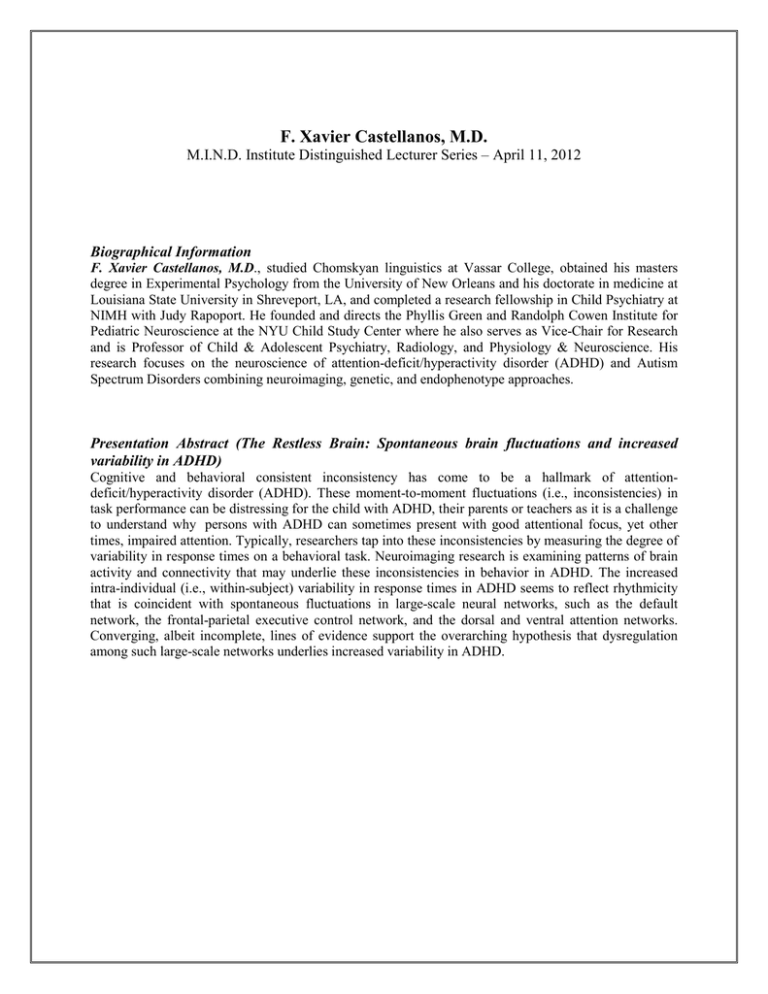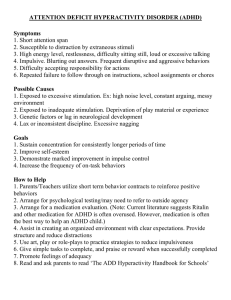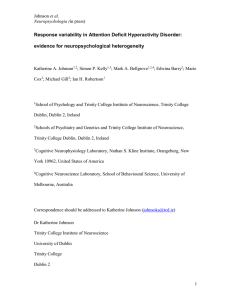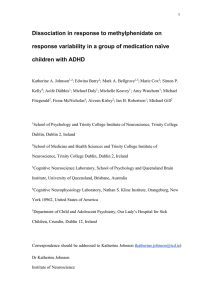F. Xavier Castellanos, M.D. Biographical Information
advertisement

F. Xavier Castellanos, M.D. M.I.N.D. Institute Distinguished Lecturer Series – April 11, 2012 Biographical Information F. Xavier Castellanos, M.D., studied Chomskyan linguistics at Vassar College, obtained his masters degree in Experimental Psychology from the University of New Orleans and his doctorate in medicine at Louisiana State University in Shreveport, LA, and completed a research fellowship in Child Psychiatry at NIMH with Judy Rapoport. He founded and directs the Phyllis Green and Randolph Cowen Institute for Pediatric Neuroscience at the NYU Child Study Center where he also serves as Vice-Chair for Research and is Professor of Child & Adolescent Psychiatry, Radiology, and Physiology & Neuroscience. His research focuses on the neuroscience of attention-deficit/hyperactivity disorder (ADHD) and Autism Spectrum Disorders combining neuroimaging, genetic, and endophenotype approaches. Presentation Abstract (The Restless Brain: Spontaneous brain fluctuations and increased variability in ADHD) Cognitive and behavioral consistent inconsistency has come to be a hallmark of attentiondeficit/hyperactivity disorder (ADHD). These moment-to-moment fluctuations (i.e., inconsistencies) in task performance can be distressing for the child with ADHD, their parents or teachers as it is a challenge to understand why persons with ADHD can sometimes present with good attentional focus, yet other times, impaired attention. Typically, researchers tap into these inconsistencies by measuring the degree of variability in response times on a behavioral task. Neuroimaging research is examining patterns of brain activity and connectivity that may underlie these inconsistencies in behavior in ADHD. The increased intra-individual (i.e., within-subject) variability in response times in ADHD seems to reflect rhythmicity that is coincident with spontaneous fluctuations in large-scale neural networks, such as the default network, the frontal-parietal executive control network, and the dorsal and ventral attention networks. Converging, albeit incomplete, lines of evidence support the overarching hypothesis that dysregulation among such large-scale networks underlies increased variability in ADHD.







